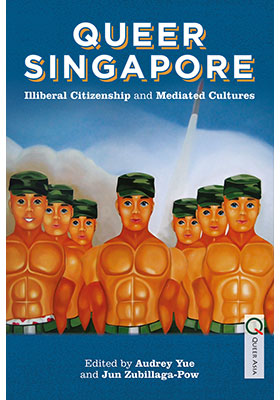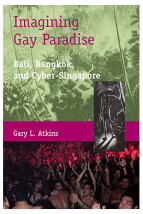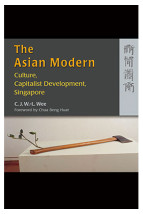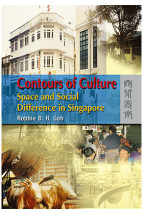Queer Singapore
Illiberal Citizenship and Mediated Cultures
(同性新加坡:狹隘的公民身份與媒體文化)
ISBN : 978-988-8139-33-0
October 2012
268 pages, 6″ x 9″, 38 b&w illus.
Ebooks
Singapore remains one of the few countries in Asia that has yet to decriminalize homosexuality. Yet it has also been hailed by many as one of the emerging gay capitals of Asia. This book accounts for the rise of mediated queer cultures in Singapore’s current milieu of illiberal citizenship.
This collection analyses how contemporary queer Singapore has emerged against a contradictory backdrop of sexual repression and cultural liberalisation. Using the innovative framework of illiberal pragmatism, established and emergent local scholars and activists provide expansive coverage of the impact of homosexuality on Singapore’s media cultures and political economy, including law, religion, the military, literature, theatre, photography, cinema, social media and queer commerce. It shows how new LGBT subjectivities have been fashioned through the governance of illiberal pragmatism, how pragmatism is appropriated as a form of social and critical democratic action, and how cultural citizenship is forged through a logic of queer complicity that complicates the flows of oppositional resistance and grassroots appropriation.
“Unique to the Singaporean LGBT scene is the ambivalence of the creative yet entrepreneurial, the culturally liberalized yet sexually repressive, and the post-colonial yet illiberal, all lucidly discussed in this volume that tackles the ironic complexities of queer ingenuity/queer complicity.” —Josephine Ho, National Central University, Taiwan
“An exciting and noteworthy contribution to the burgeoning field of queer Asia studies, the volume highlights the importance of theorizing sexuality from the specificity of local sites while being carefully attuned to how such sites are produced through global processes. The editors grapple with the central contradiction that characterizes the Singapore nation-state today: its ongoing criminalization of homosexuality on the one hand, and its embrace of cultural liberalization on the other, which has helped to make Singapore one of the epicenters of gay life in Asia. The collection allows us to understand queer culture in Singapore as not merely resistant nor assimilationist, but rather as emerging from an imaginative negotiation of these paradoxes of neoliberal postcoloniality.” —Gayatri Gopinath, New York University







